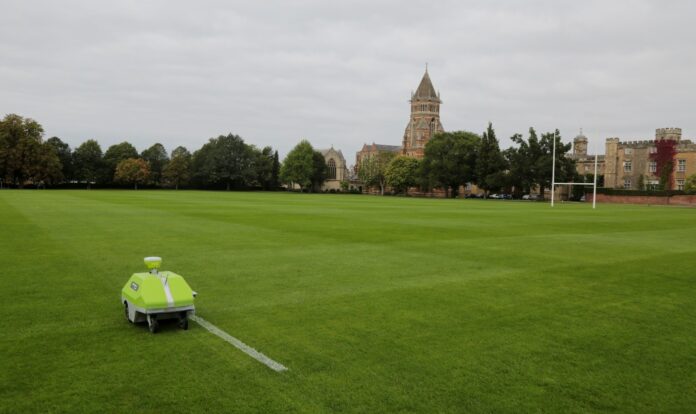One of the most recognisable professionals in the sports turf sector – and editor of TurfPro Magazine – Laurence Gale details the most up-to-date advances in turf care machinery.
With over fifty years’ experience within the Sports Turf and Amenity industry, I have been blessed to witness many innovative machinery products that have revolutionised the way we manage and maintain our landscape amenities sites and sports facilities.
One of the first ones that made an impact was the Vertidrain, which first appeared in the early 1980s; a punch tine, tractor-mounted aerator that could penetrate to a depth of 300mm, a game-changer in decompacting winter sports pitches.
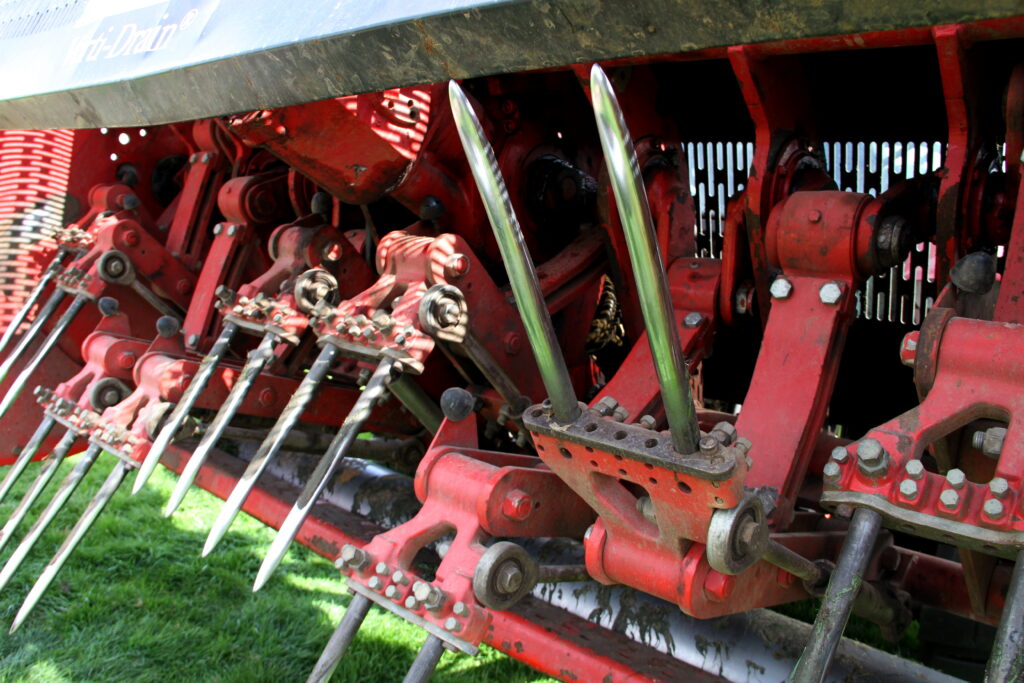
In recent years we saw the introduction of compressed air injection tines in the form of the SISIS Javelin, Airter, and AirG2 aeration machines. What followed was a plethora of manufacturers who introduced a wide range of pedestrian and ride-on rotary and cylinder mowers that gave us the ability to cut grass more cleanly and efficiently. This was soon followed up by the development of handheld strimmers that again made the job of cutting long grass more efficient.
Another major innovation that changed and transformed the way we renovate sports pitches was the brainchild of Ko Rodenberg, the KORO® FIELDTOPMAKER® (KORO® FTM®), that came to market in 1997. This machine essentially planes off unwanted surface vegetation and leaves the surface very clean and even, in preparation to resow with new grass seed.
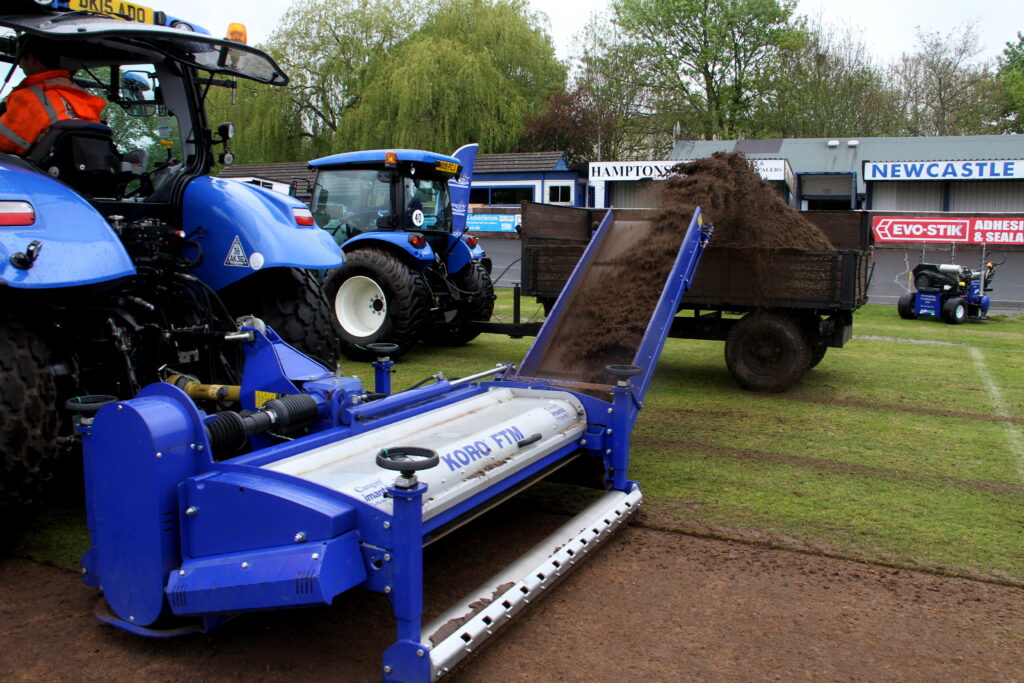
With the threat of climate change and the need to reduce emissions, curtailing the use of petrol and diesel-powered vehicles, machinery, and hand tools in the near future is a priority for both legislators and manufacturers. Many of the main turf industry machinery manufacturers are now gearing themselves up and investing heavily in electric, hybrid, and battery-powered equipment. Examples are cordless hand tools such as strimmers, blowers, chainsaws, and pruners, which are becoming cheaper and more accessible to both professional and domestic users.
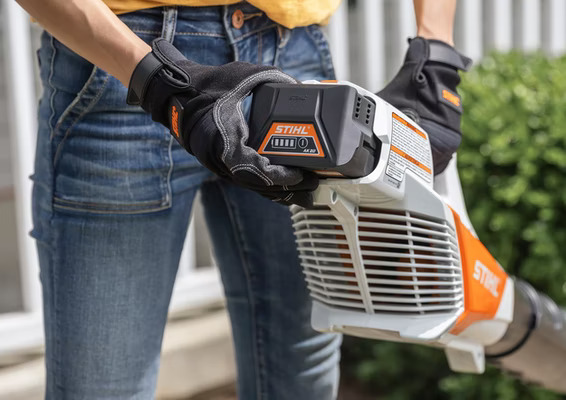
In the last few years, we have also seen great strides taken by all of the major mower manufacturers to develop battery and or hybrid driven mowers. An example of this is Dennis Mowers, who have spent over three years working with carefully selected partners to develop a range of quality battery-powered equipment. Managing Director Ian Howard has said, “Reliable and long-lasting solutions are a must have for our customers and in this rapidly developing technology field, we have chosen our partners very carefully. For us it was important to create no-compromise alternatives to our petrol mowers, which would not need constant re-charging or swapping of batteries – it was imperative that they last the distance.”
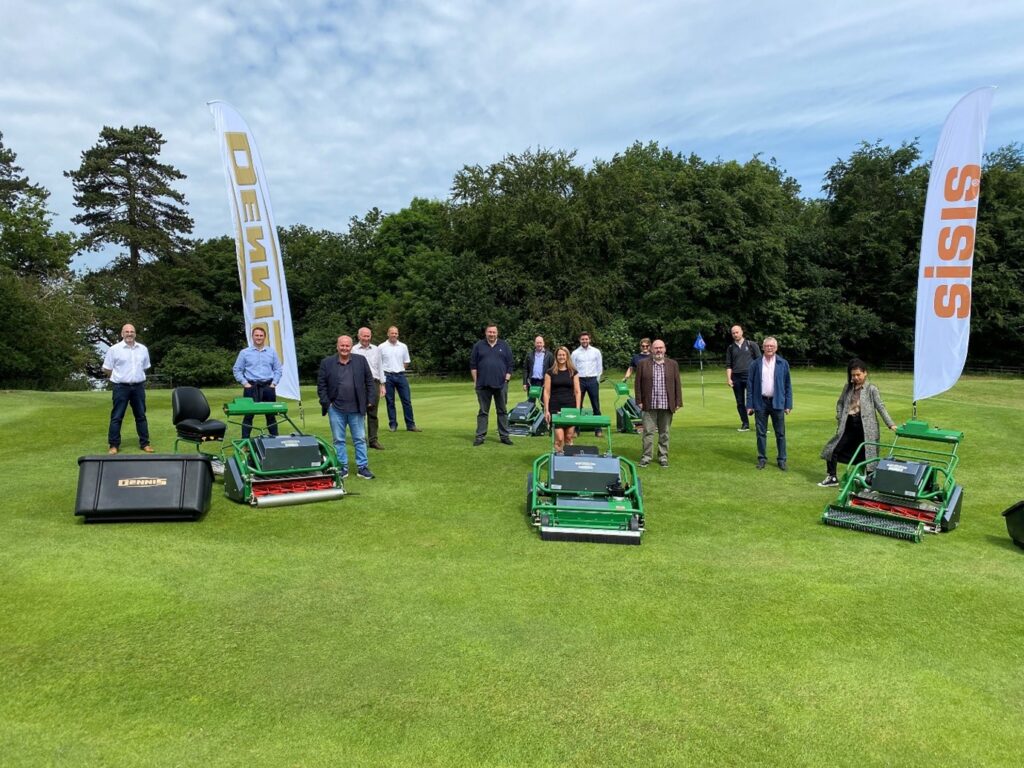
The new battery-powered range was launched at SALTX in 2021, where Ian Howard stated “The hard work has paid off and now we can unveil our first market-ready equipment befitting of the Dennis badge.” The Dennis E-Series range currently consists of three products; the ES-860 34” battery-powered turf management system, the ES-34R rotary mower with twin contra-rotating blades, and the ES-36.
Other leading manufacturers, including STIHL, Mountfield, Stiga, Husqvarna, ECHO, Countax, John Deere, Ransomes, Allett, Toro, and Hayter have developed a wide range of products. Some are specific to fine turf management – such as the Club Cadet Infinicut – and have become very popular with football, golf, and cricket facilities due to precision cutting.
However, having said all this, the current cost of these battery products is still quite high when compared to existing petrol and diesel-powered equipment, even taking into account the lower long-term ownership costs of fuel and servicing. One suspects these expenses will come down substantially in the next few years as battery technology improves. It will certainly be interesting to see how long it will be before we see a range of battery-powered scarifiers, aerators, and rotavators added to the list of battery-powered tools we have today.
The other major revolution going on in our industry is the development of robotic devices that in recent years have focussed on mowers and line marking technologies. We now have a plethora of robotic products to choose from with the likes of Stihl and Husqvarna leading the way with their range of both domestic professional products.
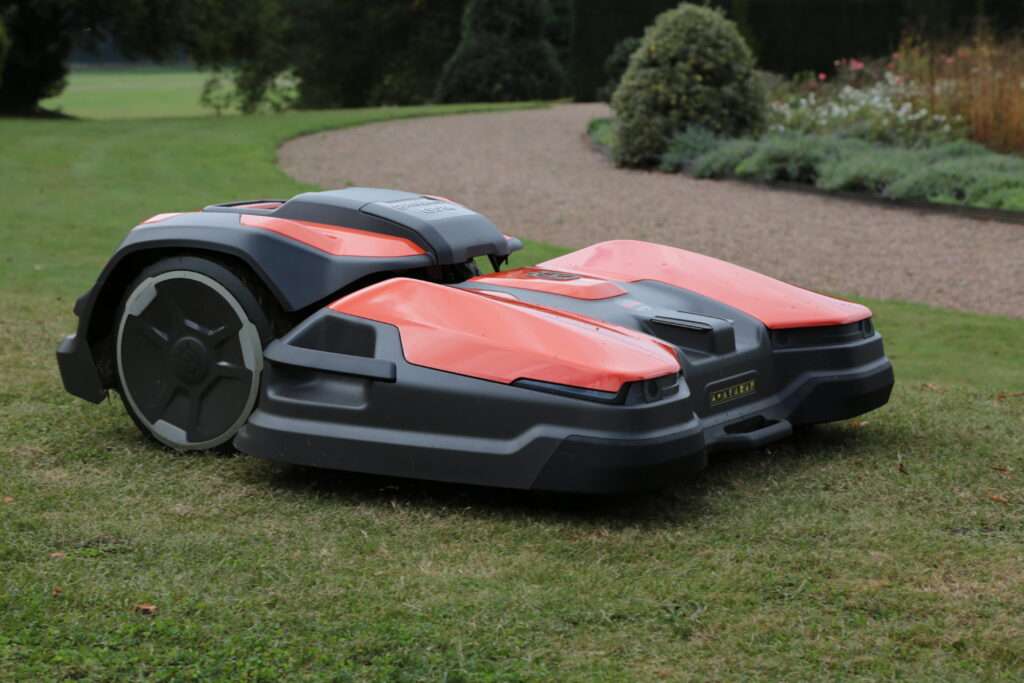
Toro have recently been showcasing their GeoLink Solutions for efficient fairway and greens mowing. Reelmaster® and Greensmaster® concept units were displayed at the 2020 Golf Industry Show.
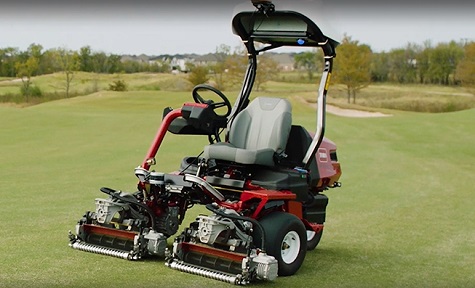
With the implementation of GeoLink Solutions technology, mowing will become more time and cost-effective. When operating autonomously, the built-in detection capability ensures the avoidance of obstacles. After defining the mowing boundary, a variety of mowing patterns can be selected. The mowers operate consistently for perfectly straight lines, even in conditions with poor visibility, and during the clean-up pass. Even more efficiency is achieved by utilising the entire width of the mower, reducing overlap, and self-transport between mowing areas.
As for line marking, the ability to do this task autonomously has saved a lot of time and money for many professional groundsmen, however, they do not come cheap, with most robotic line markers costing anything between £25,000-£100,000 depending on size and scale of the technologies that go with it. A lot of professional football clubs, private schools, and contractors are now using robotic line marking devices to be more efficient and accurate.
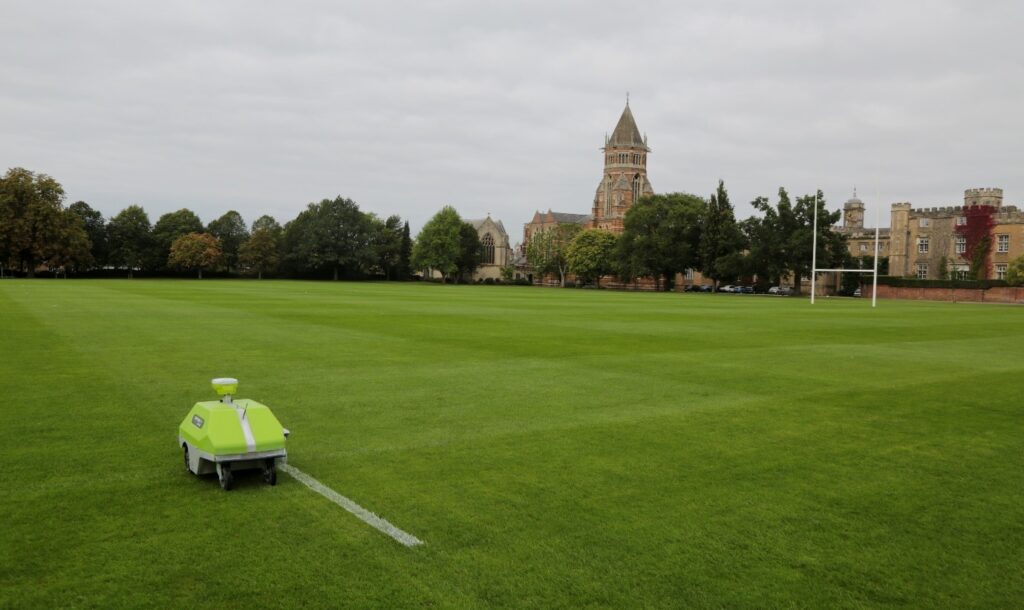
All industry manufacturers are now fully aware of the need to reduce carbon emissions and are driving new initiatives to develop alternatives to the current petrol and diesel machinery that currently dominates our industry. I look forward to witnessing these changes in the coming years.

Laurence Gale has worked in the horticulture/amenity and sports turf industry for over 50 years. He is currently the editor of Turfpro and a contributor to Service Dealer magazine. A Greenflag judge and volunteer pitch advisor (VPA) for the RFU, he is BASIS registered to advise on Pesticides and also holds PA1, PA6, and Stem Injection qualifications. |



